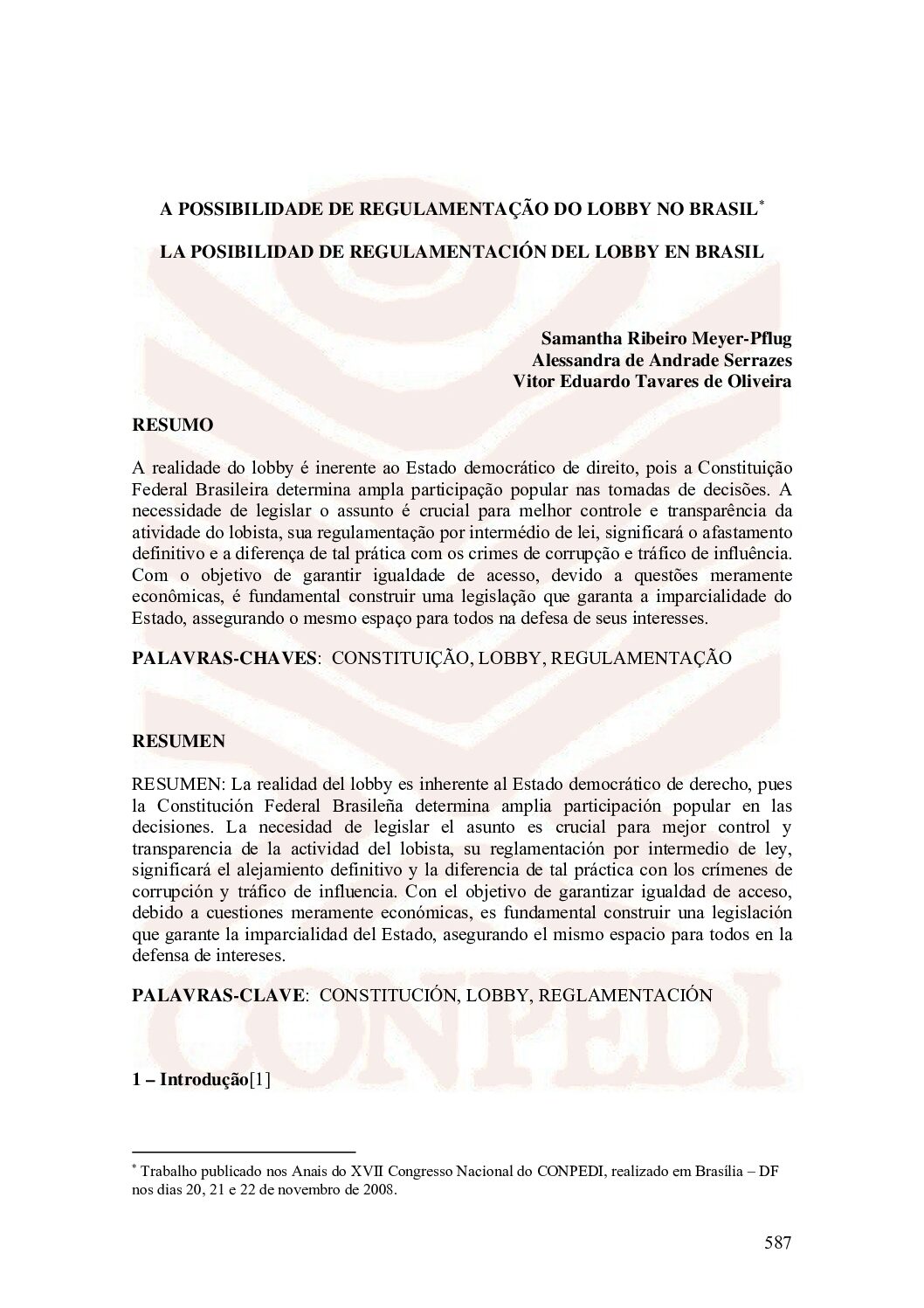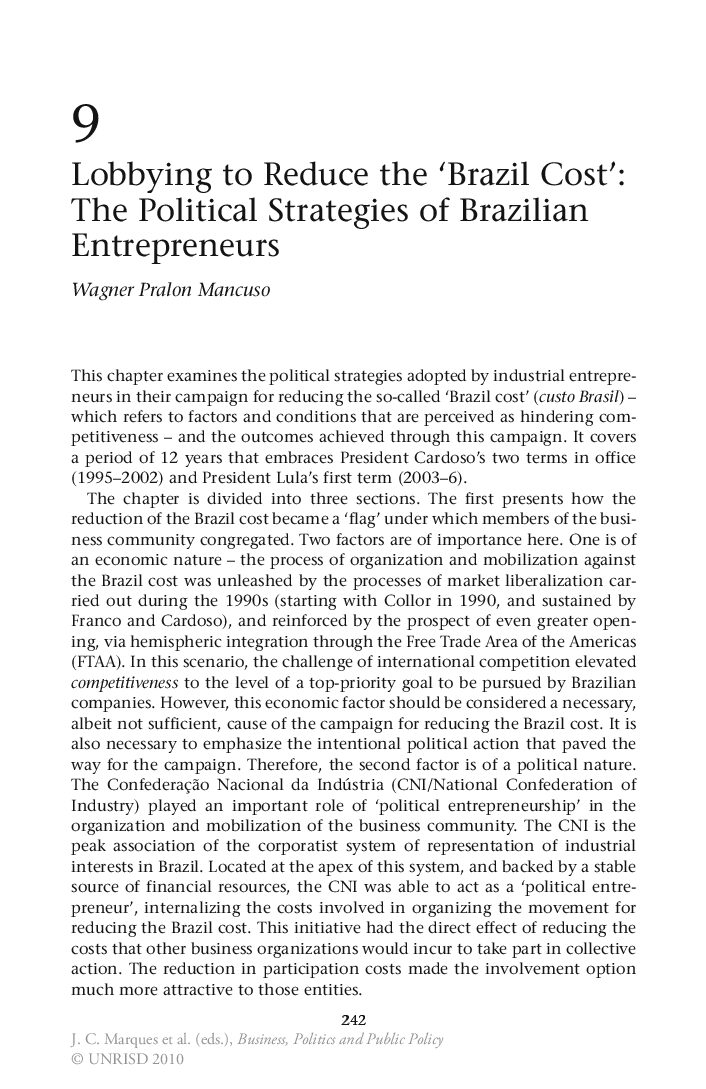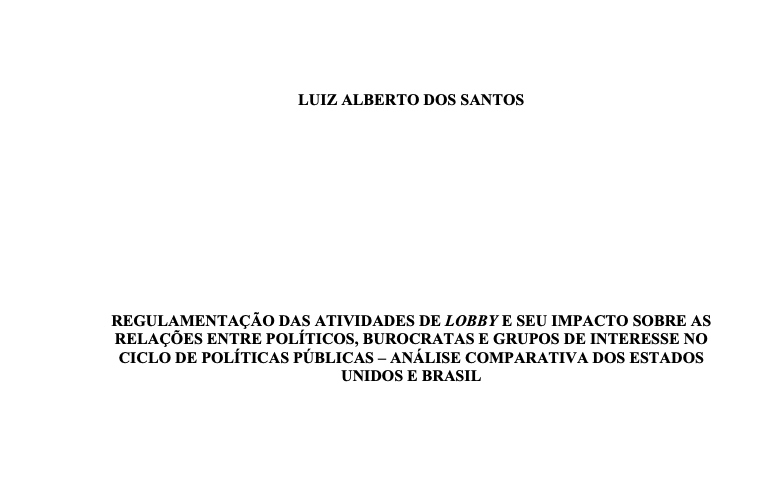
The possibility of lobby regulation in Brazil
30 de October de 2024
Lobbying to Reduce the ‘Brazil Cost’: The Political Strategies of Brazilian Entrepreneurs
1 de November de 2024Author: JÚNIA ROSA SOARES
Abstract:
This master’s thesis is an effort to systematize knowledge about the phenomena of think tanks – relevant actors of the public policy universe – through a theoretical-descriptive study, with the use of literature search. The think tanks, research organizations and advice on public policy, are widely studied in other countries, but in Brazil the phenomenon is not relevant elucidation. It is demonstrate the growing of a worldwide interconnection network between think tanks, and the increase of international studies on these organizations, while in Brazil the phenomenon remains allusive. As a result, this study purposes are to give visibility to the phenomena, adapting the traditional foreign literature to the Brazilian reality; to provide means to identify the influence exerted by these organizations in national policy making, structuring a comprehensive theoretical basis; and to allow the understanding and recognition, on empirical reality, of think tanks in action in Brazil. Its practical relevance are supported by the explanation of the phenomena, its context in the global and national landscape, and the analysis of this interest´s groups influence on the production of public policies in Brazil ‒ which is currently restricted in the national academic scene to a few scholars with specific focus: it is expected that more people understand what a think tank is and what is its activity. The study is conducted from the perspective of policy analysis and model group, focusing on the role of think tanks in the public policy cycle. Hence, as a study´s result, it is propose an expression, in Portuguese, to replace the use of expression think tank, and a concept that is appropriate to the reality of the phenomena in Brazil. There is also presented a classification of organizations, mapped to support the study as examples. Among the findings, it is consider the significant need to encourage studies about public policy, appropriate to the country’s reality, since public policy is consider a “middle range theory”, in a sense of a study field still being constructed that, however, directly influences the daily life ‒ and future ‒ of people.

